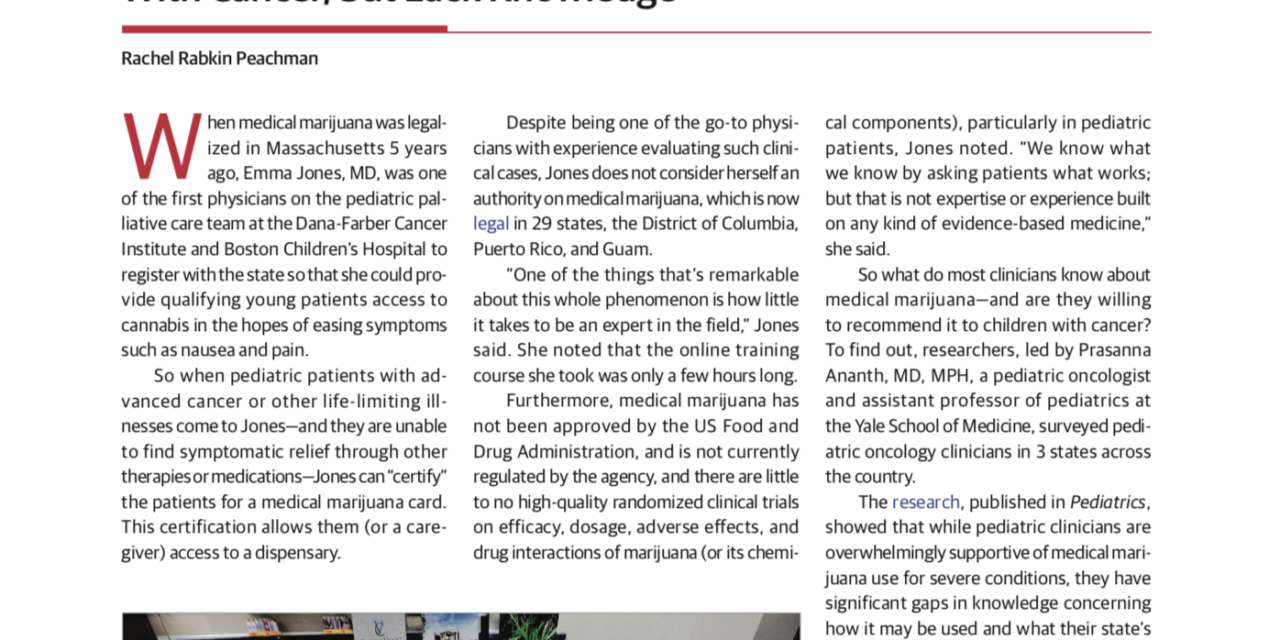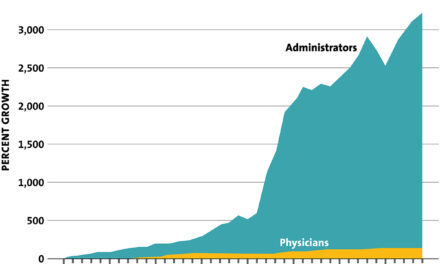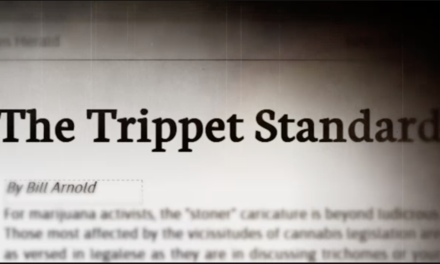Attached is an article in JAMA March 6.
I’d draw your attention to the statement highlighted on the second page “…only 59% knew that it is against federal laws to certify patients……”
I’m under the impression that the appellate decision in Conant v. Walter protects physicians’ speech in discussing and/or recommending the use of cannabis in states that have legalized medicinal cannabis.
Gary Starr, MD, a colleague in the Society of Cannabis Clinicians, emailed:
This JAMA piece clearly presents alternative facts to an under-educated (on the topic) audience. Frankly, that’s journalistic abuse in a professional journal. I would assume that the author is aware of this “subtle” complexity and is using the almost universal confusion on the topic (as the author emphasizes) to their advantage to say opinion. this is the classic stuff of political campaigns, not omniscient educating.
To your point, the actual legal opinion – pulled from the punished court opinion – in steps:
…“when faced with the fickle iterations of the government’s policy, physicians have been forced to suppress speech that would not rise to the level of that which the government constitutionally may prohibit.”…
…Holding doctors responsible for whatever conduct the doctor could anticipate a patient might engage in after leaving the doctor’s office is simply beyond the scope of either conspiracy or aiding and abetting…
…the government may not initiate an investigation of a physician solely on the basis of a recommendation of marijuana within a bona fide doctor-patient relationship, unless the government in good faith believes that it has substantial evidence of criminal conduct. Because a doctor’s recommendation does not itself constitute illegal conduct, the portion of the injunction barring investigations solely on that basis does not interfere with the federal government’s ability to enforce its laws…
…Throughout this litigation, the government has been unable to articulate exactly what speech is proscribed, describing it only in terms of speech the patient believes to be a recommendation of marijuana. Thus, whether a doctor-patient discussion of medical marijuana constitutes a “recommendation” depends largely on the meaning the patient attributes to the doctor’s words. This is not permissible under the First Amendment. See Thomas v. Collins, 323 U.S. 516, 535 (1945)…
(Meaning the First Amendment does not permit the government’s argument in this case).
and so forth. Pretty straightforward admonishment of the government’s argument and defense of the the sanctity of the physician-patient conversation.
Dale Gieringer, PhD, strongly agreed with Robinson’s suggestion that the Society of Cannabis Clinicians respond to the disinformation in JAMA:
YES, SCC should definitely write a letter to JAMA correcting the spurious claim that it is against federal law for docs to “certify” mmj patients.
Technically, it depends on what it means for doctors to “certify” patients. This isn’t the normal term —here in CA, MDs “recommend” or “approve,” and likewise in most other states. However, if, as seems reasonable, “certify” is interpreted to mean ‘validate a patient’s legal status under state MMJ laws,’ then there’s nothing in federal law to forbid it. And Conant vs Walters certainly determined that this was constitutionally protected free speech.
Because Conant v Walters was a 9th Circuit decision, it isn’t strictly binding in other parts of the country. However, since the Supreme Court declined to review it, it can be assumed they agree with the reasoning. Techinically, in order to have full standing as official “law of the land,” the Supreme Court would have had to review it and uphold it. But by letting the 9th Circuit decision stand, SCOTUS has effectively left it as de facto law.It might be pointed out that the VA specifically allows its patients to get MMJ recommendations from outside physicians , indicating they regard them as legitimate. Nonetheless, the VA can and does prohibit its own doctors from issuing recommendations themselves, as is their legal right as an employer.





